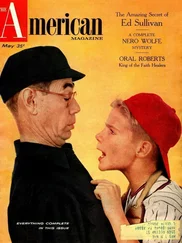Early was quiet a moment, then he finally pushed his empty cup toward her.
“What if I help you find her?” he said.
She frowned, pouring the coffee slowly.
“What you mean?” she said.
“Got a new job out in Texas, then I’m headin back this way,” he said. “We could drive into New Orleans. Ask around.”
“Why you wanna help me anyway?” she said.
“Cause I’m good at it,” he said.
“Good at what?”
He slid a worn manila envelope onto the countertop. It was addressed to a man named Ceel Lewis, but she recognized Sam’s handwriting.
“Huntin,” he said.
—
IN A LITTLE TOWN outside Abilene, Texas, Early dreamed about Desiree Vignes.
Beneath the setting sun, he sprawled along the backseat of his El Camino, cradling a photograph of her. He’d given all of Ceel’s pictures back to her except for one, which he’d already slid into the inside pocket of his leather jacket, feeling its corners poke his chest. He wasn’t sure why he kept that picture. Wanted something to remember her by, maybe, if she decided to never speak to him again. She’d looked so shaken when she learned his true purpose in finding her, which he couldn’t blame; he didn’t stick around to find out if she could forgive him. Off to Texas, where he was hunting a mechanic charged with assault and attempted murder—his wife, her lover, a torque wrench. The blood-splattered garage made the front page in the Times-Picayune . On his drive west, Early imagined the mechanic swinging that wrench like Samson hurling a donkey jaw, blinded by his own righteousness and betrayal. Once, he might have been excited to hunt a man accused of such a sensational crime. But he was distracted now; when he closed his eyes, he imagined only Desiree.
At the truck stop, he bought a Coke and stepped into the phone booth to tell Sam Winston that his wife wasn’t in New Orleans.
“Probably lit out east,” he said. “New York, New Jersey, somethin like that.”
“Why on earth she go out there, man?” Sam said. “No, I’m telling you, she’s back in New Orleans. You just ain’t looked hard enough.”
“Ask Ceel how hard I look. If she was here, I woulda found her already.”
“What if I send you more money?”
“Then I tell you the same thing,” Early said. “She ain’t here. Try someplace else.”
He hung up the phone, leaning against the booth. His mind started to unspool backward; he knew how to find a hiding man but how to hide a woman so that she would never be found? Plant misinformation, scatter the trail so that any other man Sam hired wouldn’t even know where to start. He fished in his pockets for a cigarette, his hands trembling. He’d never walked away from a job before. Exposed his camera film under the sunlight, the photographs of Desiree on her porch blackening. Money disappearing from his pockets. When he told Ceel that he’d come up empty and needed another job, quick, Ceel just shrugged, handing him the mechanic’s photograph.
“Can’t believe that little lady got the best of you,” he’d said, laughing, as he pushed away from the bar.
She had, Early was starting to admit. He didn’t know what it was about her but she’d hooked into him like a burr. He couldn’t shake her. Didn’t want to. In the phone booth, he pulled out a crumpled receipt from his pocket and dialed Lou’s Egg House. When he heard her voice, he felt so nervous that he thought, for a second, about hanging up. Instead, he cleared his throat and asked how she was getting on.
“Oh fine,” she said. “You know how it is. Where you off to right now?”
“Eula, Texas,” he said. “You ever been to Eula?”
“No,” she said. “What’s it like?”
“Dry,” he said. “Dusty. Lonesome. I feel like the only man alive out here. Like I fallen off the edge of the earth. You ever know that feeling?”
He imagined her on the other end, clutching the phone as she leaned against the kitchen door. The diner would be emptying now, near closing. Maybe she was all alone, willing the time to pass. Thinking about her sister, or maybe even thinking about him.
“I know it exactly,” she said.
—
IF YOU’D ASKED BACK THEN, nobody believed that Desiree Vignes would stay in Mallard. The bet around town was that she wouldn’t last a month. She’d tire of the crude whispers about her daughter, whispers she must have sensed, even if she could not hear them, each time the two walked around town. Some hoped, watching Desiree hold the hand of the little dark girl, that the two wouldn’t even stay that long. They weren’t used to having a dark child amongst them and were surprised by how much it upset them. Each time that girl passed by, no hat or nothing, they were as galled as when Thomas Richard returned from the war, half a leg lighter, and walked around town with one pant leg pinned back so that everyone could see his loss. If nothing could be done about ugliness, you ought to at least look like you were trying to hide it.
Still, a month passed, startling everyone. If Desiree didn’t leave because of her daughter, surely boredom alone would root her out. After all her city adventures, how could she endure small-town living? The endless carousel of church bake sales, bazaars, talent shows, birthday parties and weddings and funerals. She’d never cared much for participating even before she’d left—that was the other one, Stella, who’d baked pecan pies for St. Catherine’s bake sale, or sang dutifully in the school choir, or stayed two hours to celebrate Trinity Thierry’s seventieth birthday. Not Desiree, who only attended the party after Stella dragged her, then looked so bored you wished you hadn’t even invited her before she skipped out while you cut the cake.
Somehow that same Desiree was back, kneeling between her mother and daughter during Sunday Mass. She was as surprised as anyone to realize, one morning, that she had been home for an entire month. By then, she’d fallen into a routine, walking Jude to school, cleaning the house, working the sedate dinner crowd at Lou’s as Jude read books at the counter. Each evening, she waited for Early Jones to call. She never knew where he would be calling from, or if he would call at all, but when Lou’s phone rang near closing, she always answered. The shrill bell jolted her from mindlessly refilling sugar canisters or wiping down tabletops.
“Just checkin in on you,” Early always said. How was her day? Her mama? Her daughter? Fine, fine, fine. Sometimes he asked about her shift and she told him that she’d had to send back three orders of eggs because the line cook, distracted as all get out, gave her scrambles instead of over easys. Or she asked about his drive and he told her that he’d been caught in a dust storm in Oklahoma, couldn’t see his own hand in front of him, and he’d had to inch slowly down the road, hoping he wouldn’t get hit. His stories excited her, even the dull ones. His life seemed so different from hers. Over time, he started to talk about the past, like how he’d been raised by his aunt and uncle after his parents dropped him off one night. She’d heard of children like this who had been given away. After her father died, her mother’s sister offered to take one of the twins.
“It’s too much,” Aunt Sophie had said, clasping their mother’s hands. “Let us lighten your load.”
The twins pressed against their bedroom door, listening hard, each wondering if she would be the one to go. Would Aunt Sophie take her pick, like choosing a puppy out of a basket? Or would their mother decide which daughter she could live without? Eventually, their mother told Aunt Sophie that she could not separate her girls, but later, Desiree learned that her aunt had asked for her. Aunt Sophie lived in Houston, and Desiree used to imagine her life there, a city girl whisking around in starched dresses and shiny leather shoes, not the faded calico her mother salvaged from the church bin.
Читать дальше












